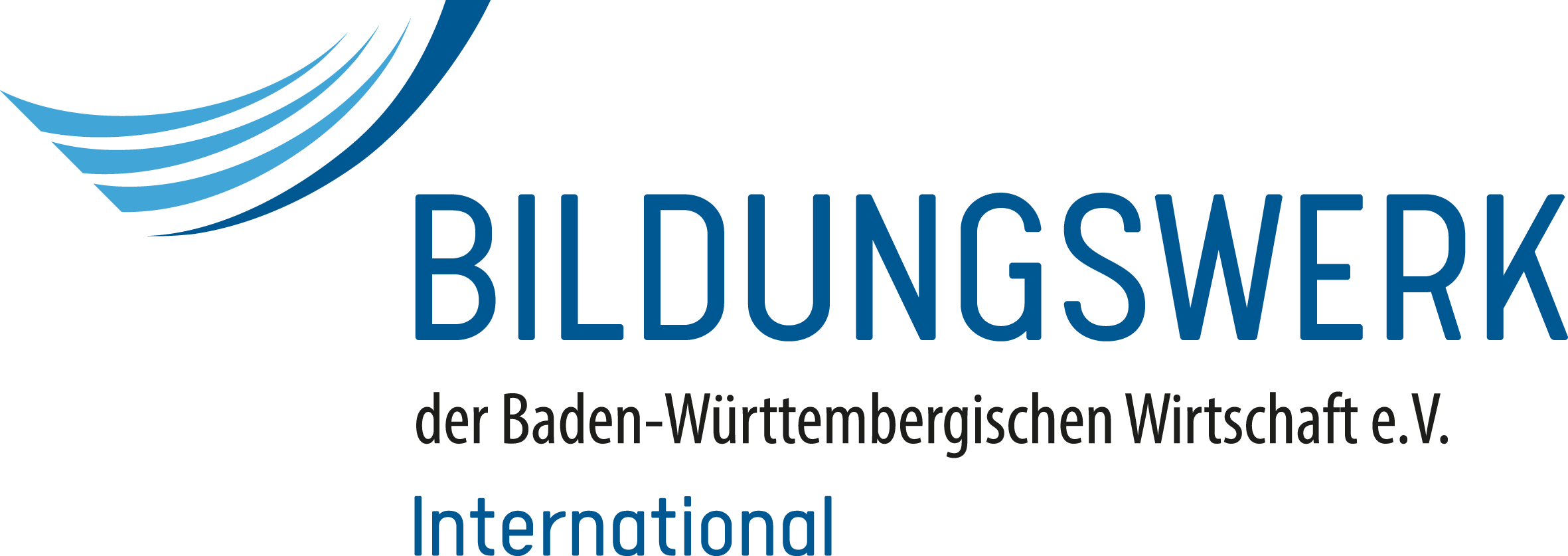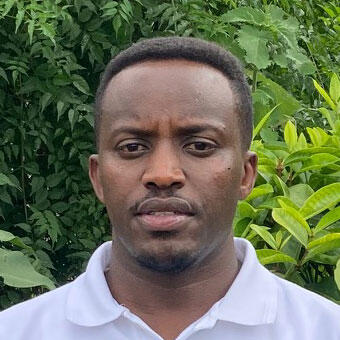German dual vocational training: successful blueprint in Rwanda
The "Youth Skilling and Employment Initiative Rwanda" of the Bildungswerk der Baden-Württembergischen Wirtschaft e. V. (BIWE) trains young Rwandans in areas such as sales, customer service, welding and plumbing and places them in companies.
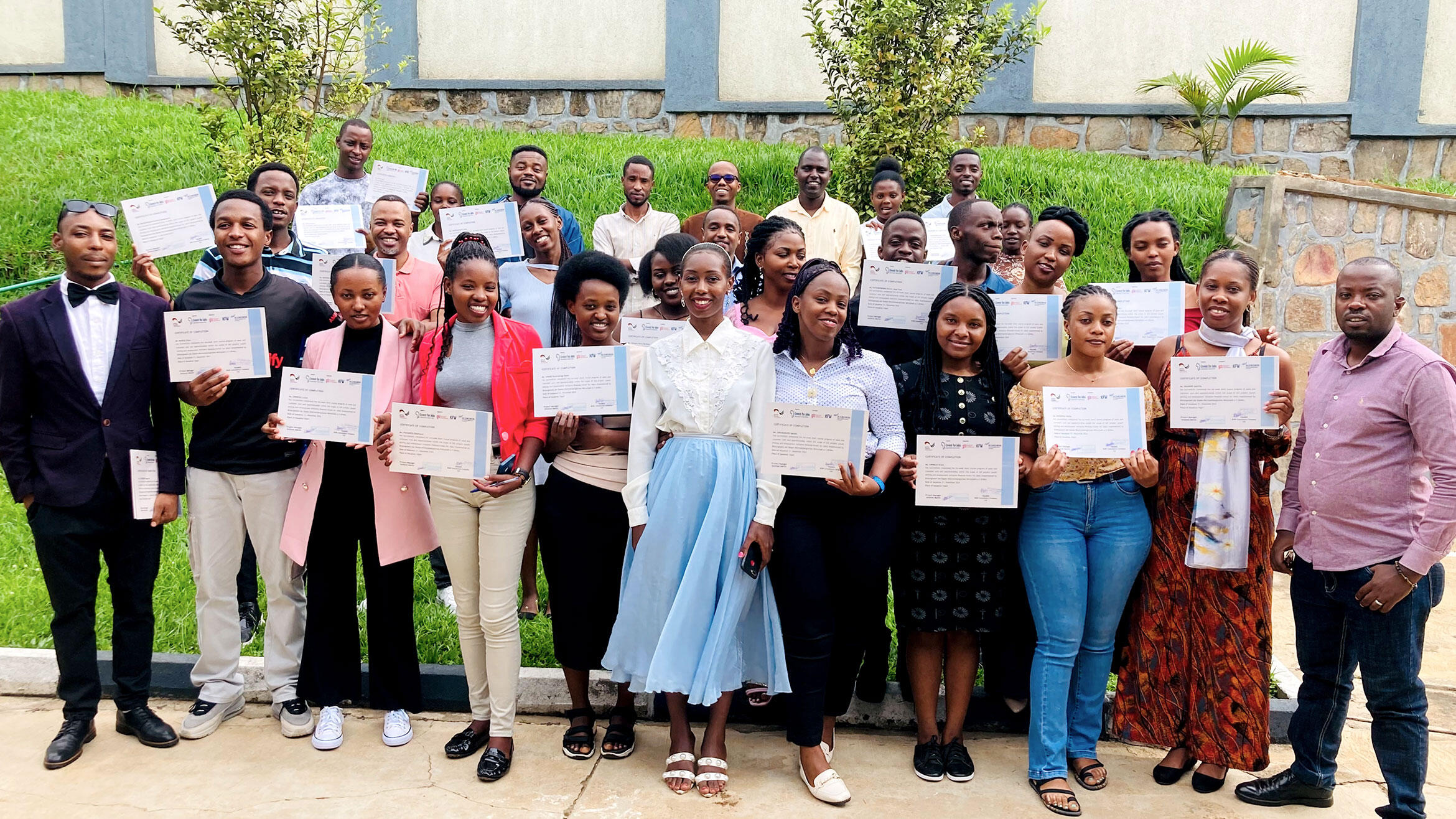
Since March 2024, the project has been helping to combat youth unemployment in Rwanda. In doing so, it capitalises on the growing importance and acceptance of vocational training in Rwanda and helps to close the critical gap between education and employment.
The BIWE project is funded by the special initiative "Good Employment for Socially Just Change" (Invest for Jobs) of the German Federal Ministry for Economic Cooperation and Development (BMZ) and implemented by the Deutsche Gesellschaft für Internationale Zusammenarbeit (GIZ) GmbH.
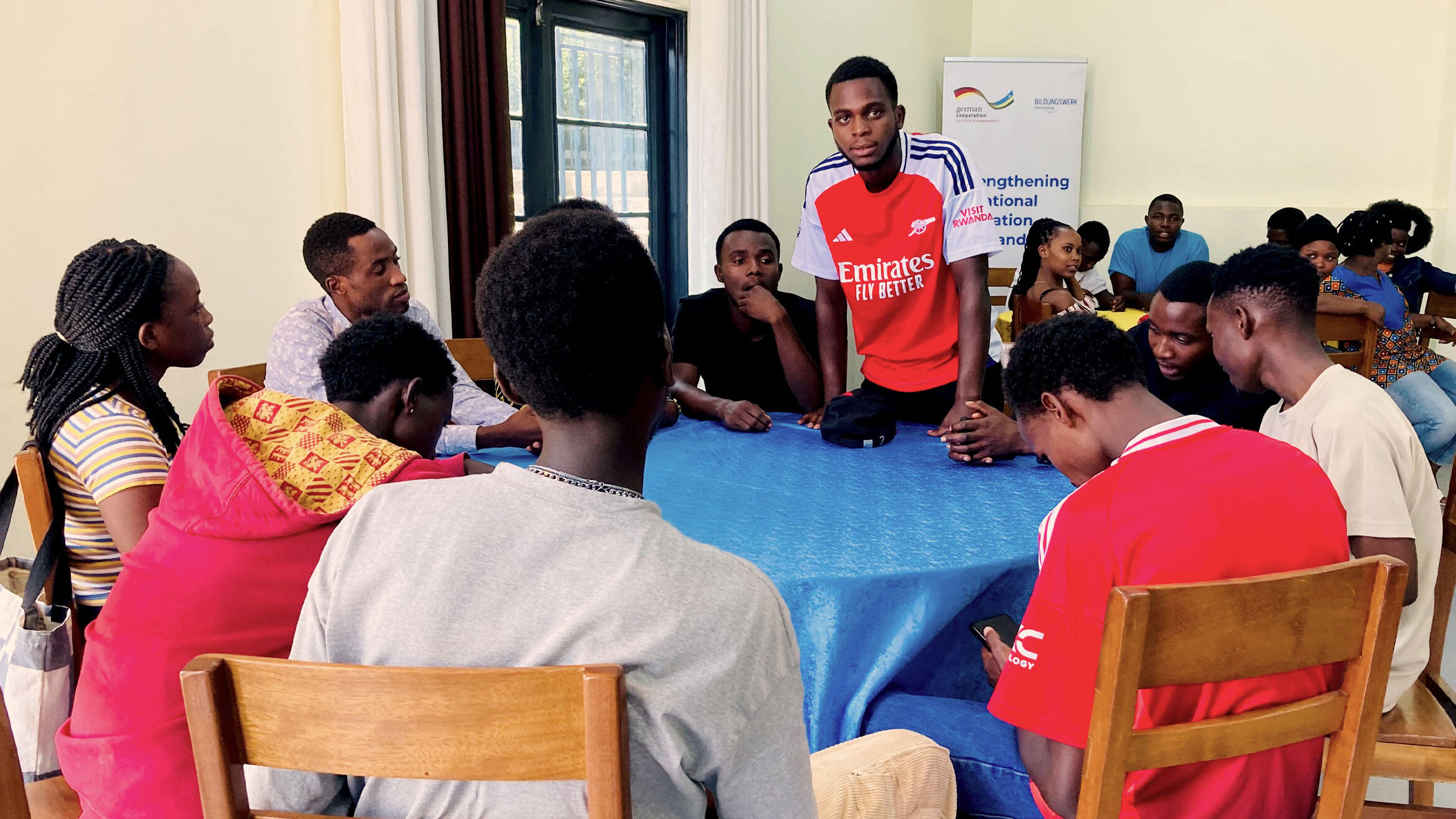
Who does BIWE train and how?
The aim of the project is to train young Rwandans in areas such as sales, customer service, welding and plumbing. The project mandate explicitly included the promotion of women. To date, BIWE has trained 196 people. The proportion of women is over 30 per cent.
With an approach that combines classroom learning with practical experience in the company, the programme offers comprehensive preparation for entering the labour market. The curriculum is tailored to the needs of companies and ensures that graduates have both technical expertise and the necessary soft skills.
The sustainability of the training programme is another important factor of the project. To this end, BIWE is examining new models for the future, such as a self-sustaining recruitment company that could provide companies with trained labour.
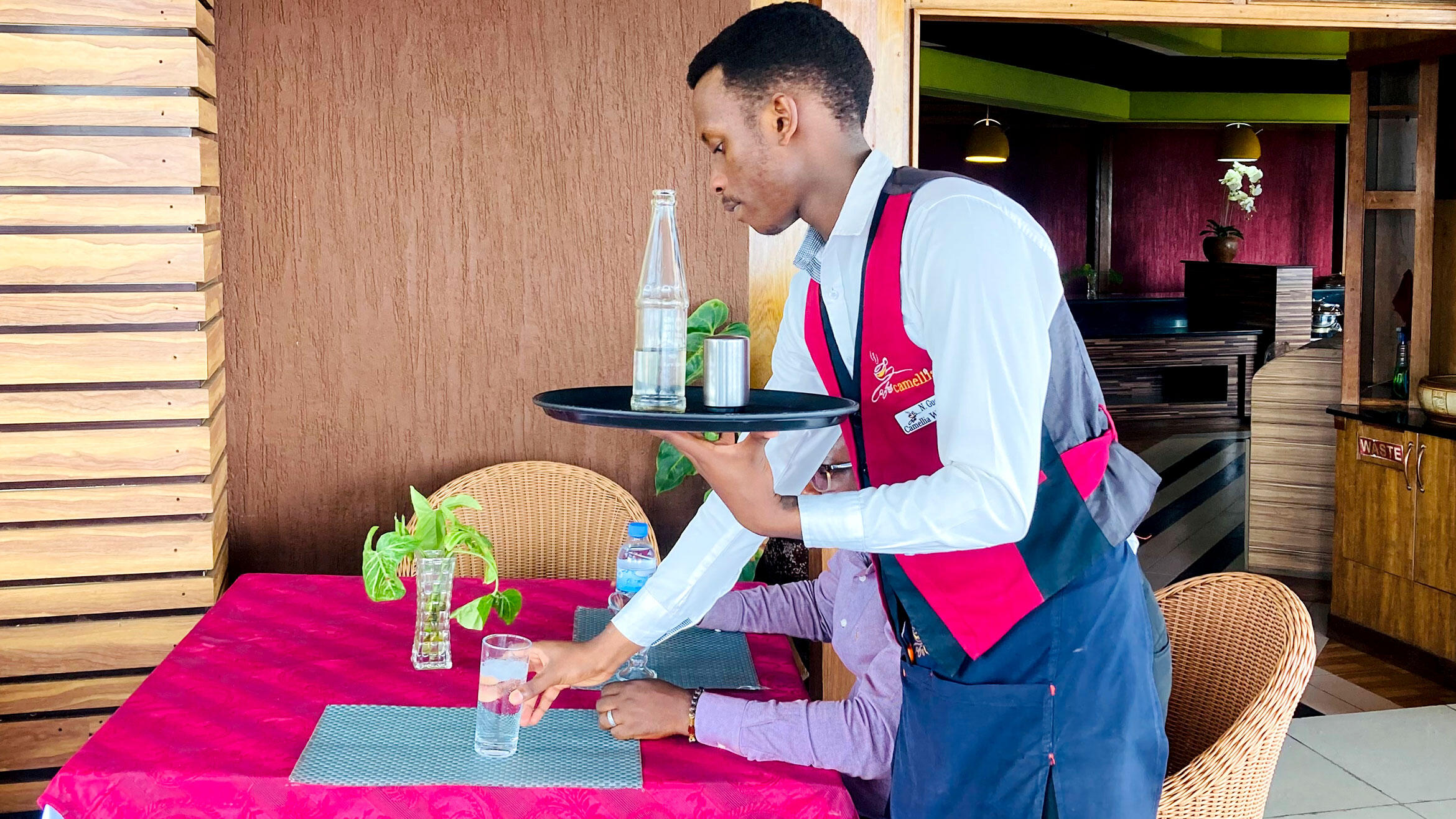
Reaching young people - but how?
BIWE's outreach strategy focuses on inclusion, targeting young people who may not have the opportunity to attend higher education because they come from disadvantaged backgrounds.
The key to finding suitable young people was to work with local communities and organisations. Cooperation with local government authorities or non-governmental organisations such as CARE and Caritas, for example, helped to identify young people who were both at risk and motivated to improve their living conditions.
For these young people, mentoring and coaching played a particularly important role during their training in order to boost their self-confidence and prepare them for the labour market.
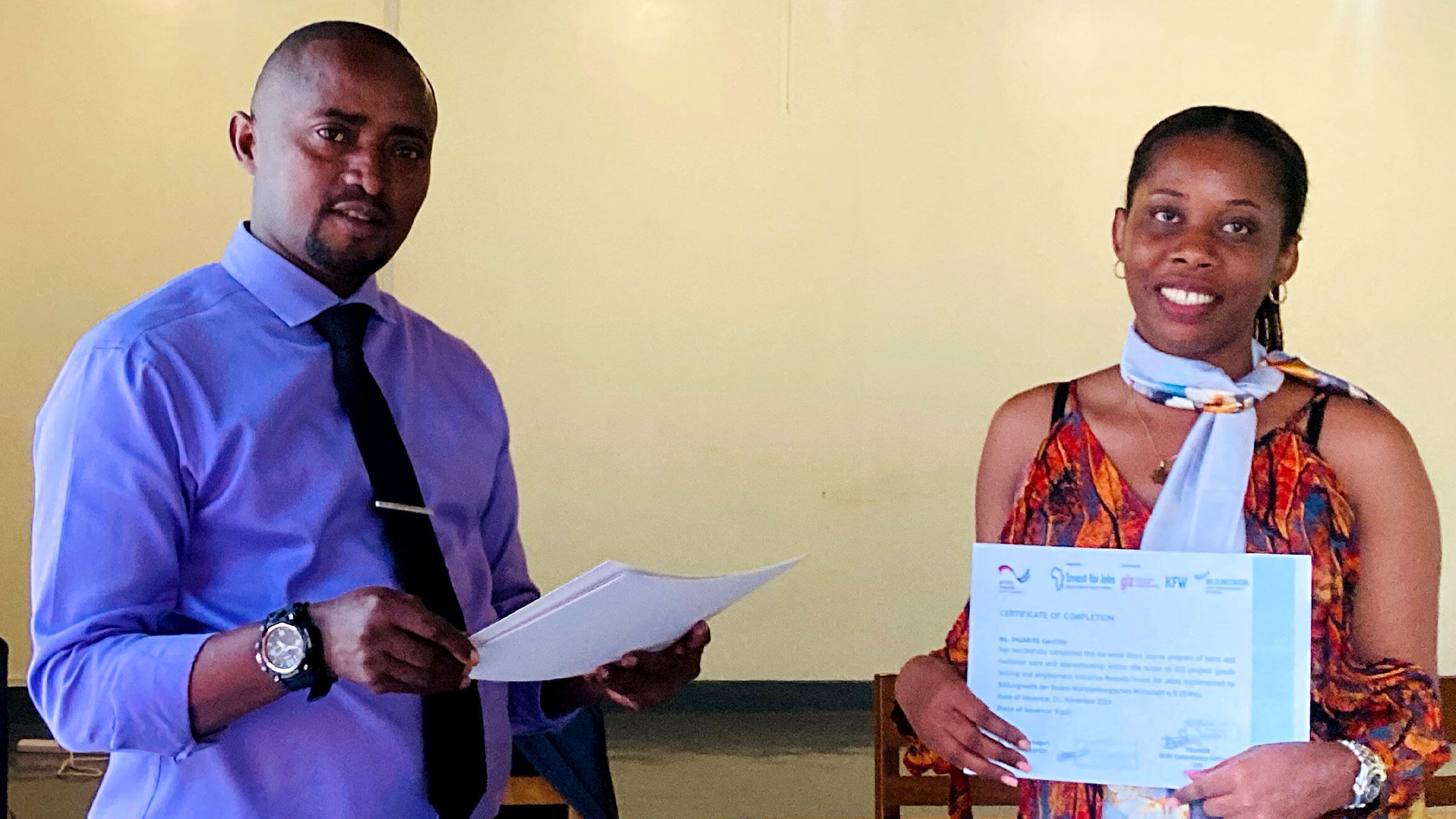
Local and international industry partnerships
A cornerstone of the project is the collaboration with companies, including key Rwandan and international partners such as Simba Supermarket, Radisson Blu, Marriott Hotels, Hotel des Milles Collines, Sawa Citi Supermarket (part of the Austrian SPAR Österreichische Warenhandels-AG) and Volkswagen Rwanda.
These partnerships ensure that the training meets real-world needs and enables a seamless transition from training to employment.
The involvement of local companies is important as it emphasises the shared commitment to developing a skilled workforce.
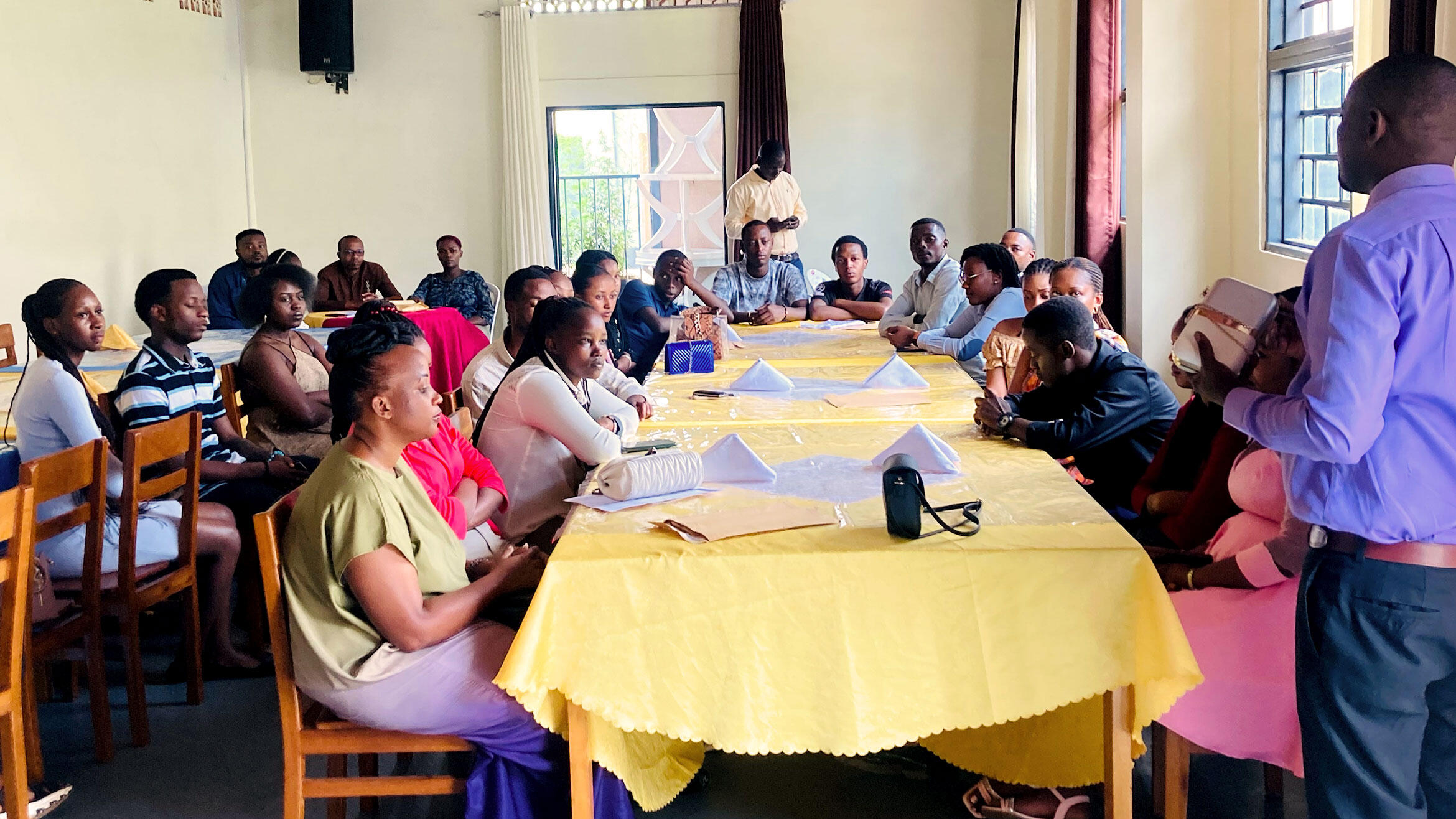
Supporting companies that provide training
BIWE plays an important role in supporting partner companies throughout the training process. For example, the Baden-Württemberg organisation has trained companies on how to retain new and young employees. The trainers in the companies play a very important role here and need to be trained accordingly.
In addition, local BIWE employees are in close contact with the companies and offer them daily support in managing and promoting new talent.
BIWE also creates structures for companies to share experience and best practices in human resource management.
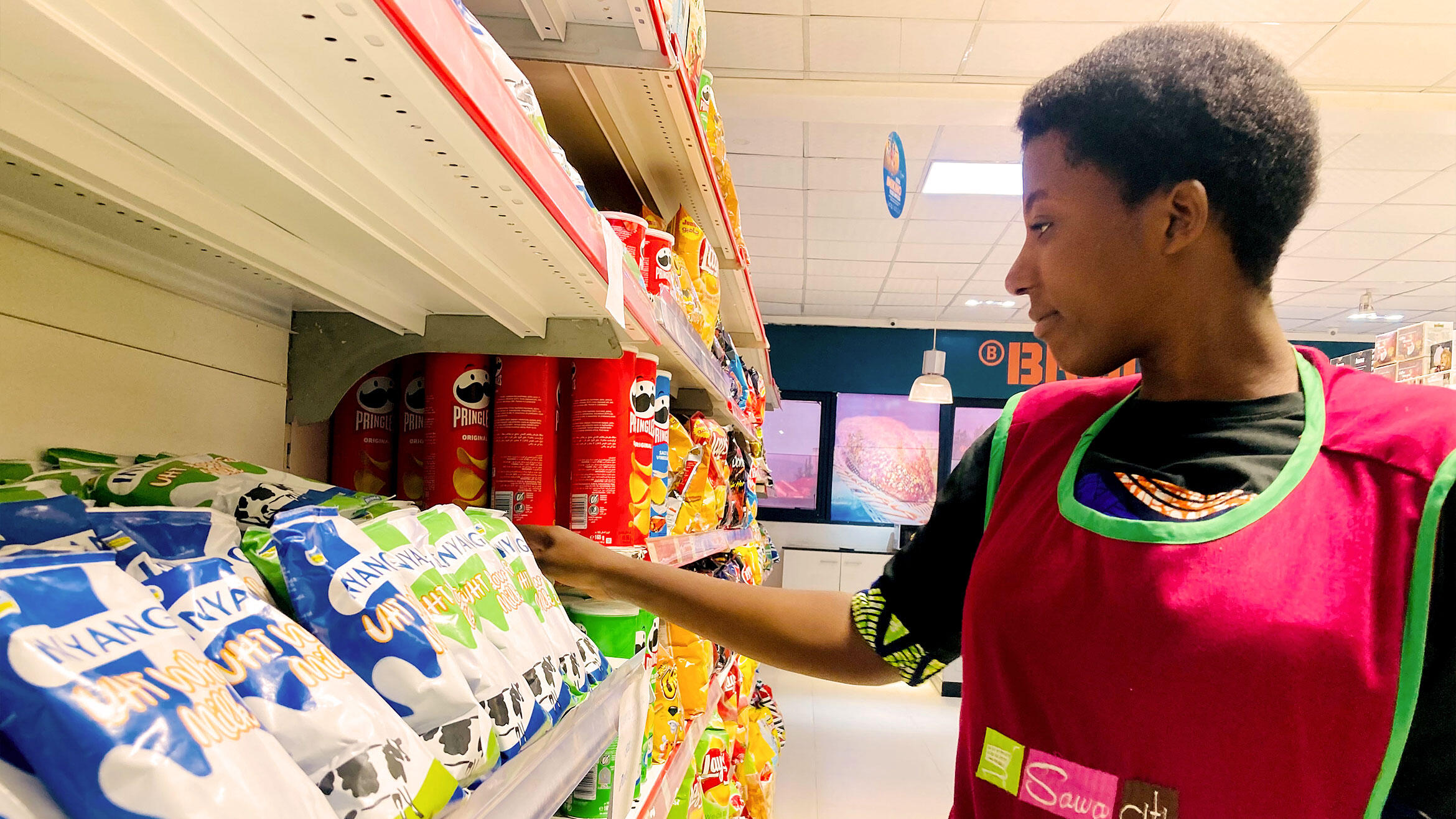
Tips for training providers
The demand for skilled labour in Rwanda's growing sectors, including retail, hospitality and construction, offers significant business opportunities for German training providers.
The Rwandan market requires a focus on quality, relevance and, as well as a focus on clear core competencies. For education providers looking to enter Rwanda or similar markets, understanding the local labour market dynamics and building strong relationships with industry is crucial.
From the BIWE industry liaison's perspective, the art of getting graduates into work is as follows:
Successfully placing graduates in jobs relies heavily on a strategic and proactive approach. Selecting the right companies to work with is crucial to ensure that they match the project objectives and the skills of the graduates.
It is also important to establish expectations of their role and behaviour in the workplace through clear communication with them.
Keeping in close contact with partner companies and actively organising contact opportunities through online platforms, networking events or direct contact helps to identify new prospects.
By proactively and persistently cultivating contacts across multiple channels, BIWE maximises the chances of meaningful employment for graduates.
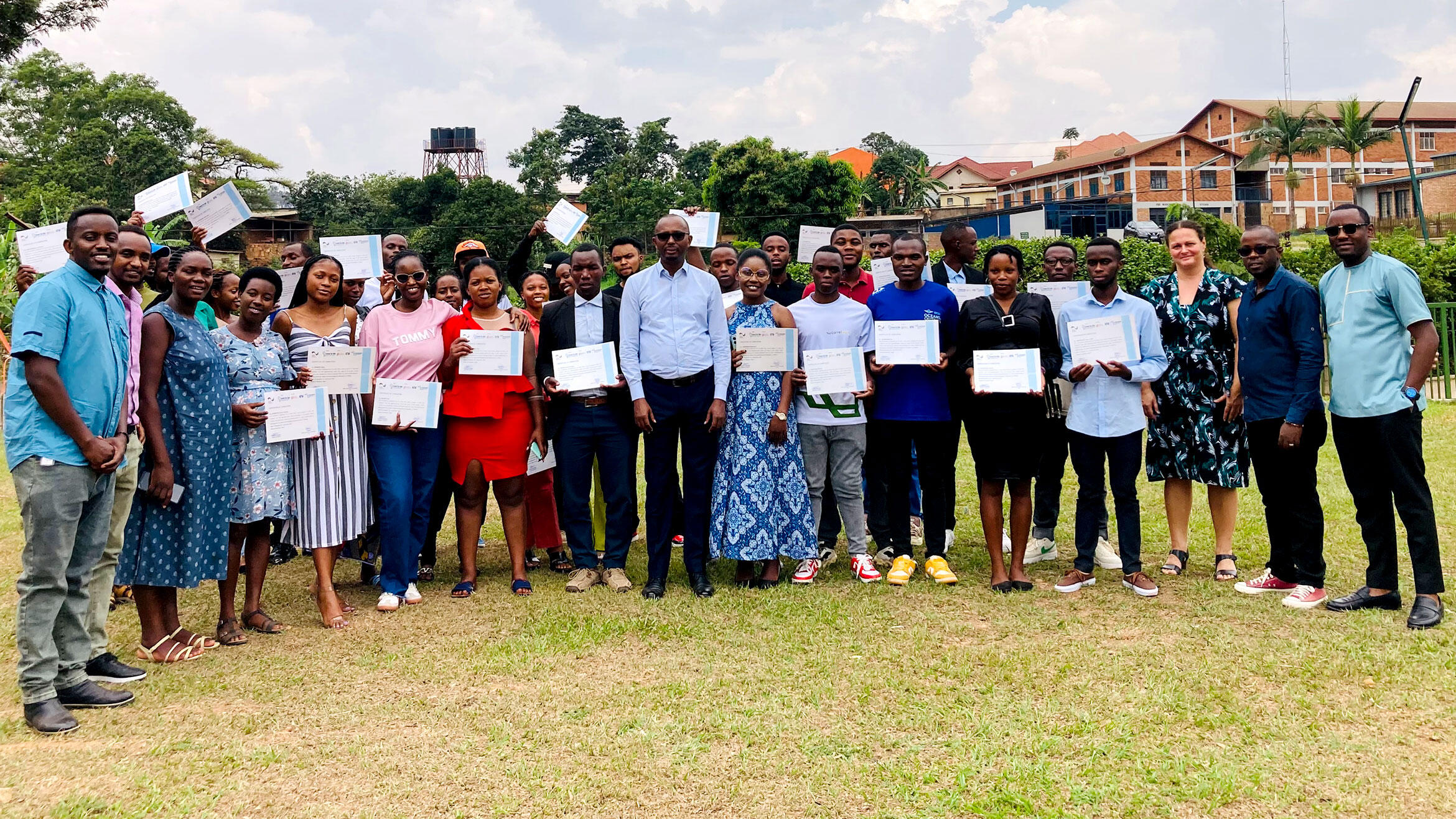
Challenges and opportunities
The implementation of vocational training programmes in Rwanda is not without its obstacles.
One challenge is the limited access to training for apprentices and the initial reluctance of some companies.
Another obstacle is finding a job, as some graduates find it difficult to stand out in the market and present themselves with confidence.
By fostering self-confidence and demonstrating the value of skilled young people, BIWE has been able to overcome many obstacles.
We will continue to refine and expand this initiative and invite other training providers to join us. Through education and job creation, we can help to give young people a perspective in life.
Ishimwe Martin, Project Manager Initiative "Decent Work for a Just Transition", Invest for Jobs
This project shows how international cooperation can create effective vocational training models. The combination of theory and practice, the promotion of partnerships and the persuasion of companies has put the BIWE project on a successful and sustainable path.
Background: Invest for Jobs
Under the "Invest for Jobs" brand, the BMZ has bundled a range of programmes to support German, European and African companies in their commitment to creating jobs in Africa.
The special initiative "Good Employment for Socially Just Change" offers comprehensive advice, contacts and financial support to remove barriers to investment.
The development policy objective is to work together with companies to create good jobs in the eight African partner countries and to improve local working conditions and social security. The special initiative is being implemented by GIZ, among others.
